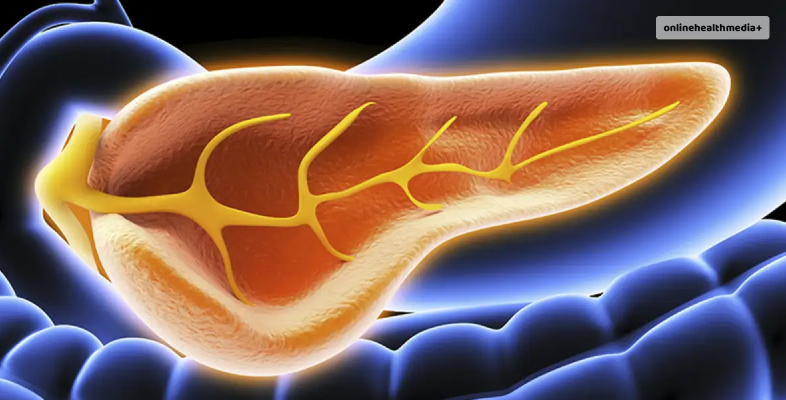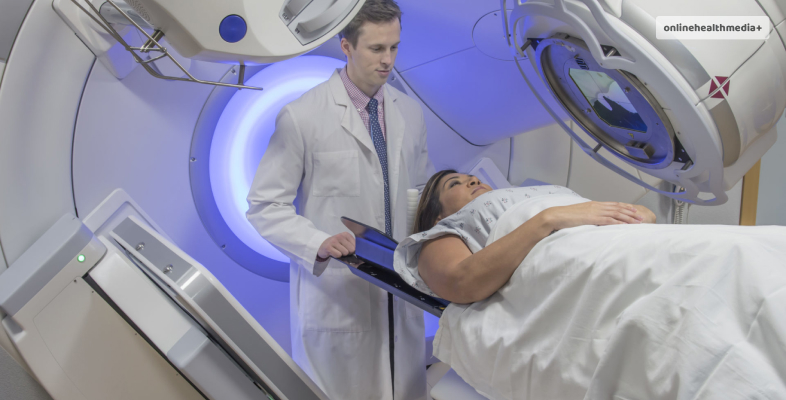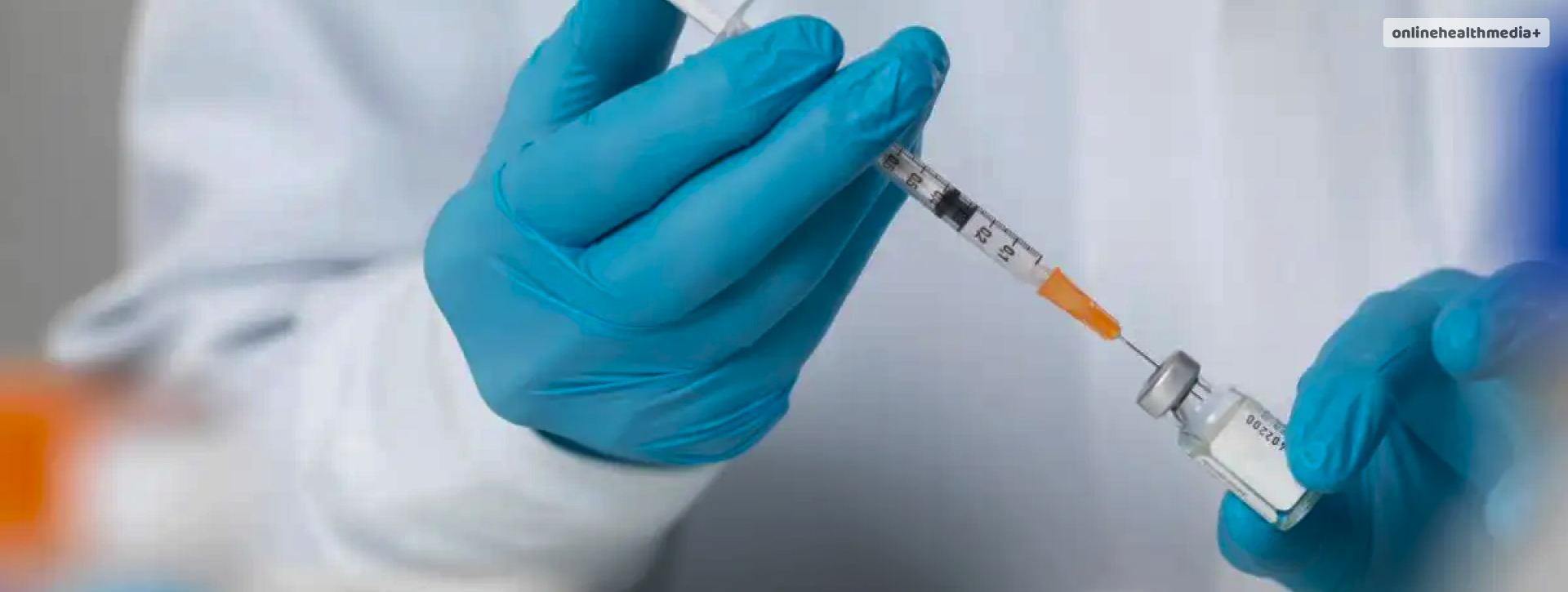Pancreatic Cancer Vaccines For Treatment? Here Is The Latest On The Approach.
If you are looking for the latest development on the pancreatic cancer vaccines, here is the complete rundown of the treatment. Pancreatic cancer is a chronic condition where the cancer cells can spread from the pancreas.
The pancreas is an essential organ that carries out some of the most important functions such as- producing digestive enzymes.
The organ is also an MVP of blood sugar regulation. As it secretes hormones that can control the amount of sugar present in the blood.
The following sections will dive deep into the A-Z of the vaccines which are available for pancreatic cancer, including those in clinical trials.
Pancreas: The important gland.

The elongated organ present behind our stomach, the pancreas has a head that is its widest part. This side is present in the curve of the duodenum (or the small intestine).
Also known as a gland- it mainly secretes hormones. It plays both exocrine and endocrine functions where it secretes hormones for both digestion and regulation of physiological functions such as blood sugar regulation.
The exocrine glands present in the organ help in facilitating exocrine function. For those who may need familiarizing with the terms- exocrine implies glands that secrete the hormone into a ductal system to an epithelial surface. The endocrine glands release the hormones directly into the bloodstream.
Exocrine function is the production of enzymes that facilitate digestion. The examples of digestive hormones that it produces includes chymotrypsin, trypsin, lipase and amylase.
All of these enzymes are responsible for breaking down various food groups that may be in one’s diet.
On the other hand, the endocrine function is the production of three main hormones namely- glucagon, insulin, and somatostatin.
The former two regulate the blood sugar levels, whereas the latter prevents the production of the first two.
The production of all the hormones are tightly regulated- or controlled – by the signals and elaborate pathways.
These pathways are also common points through which abnormal functioning of organs can be triggered.
Common diseases either involving microorganisms or other factors can disrupt the physiological functioning through ‘breaking’ a link in the chain, thus causing a disease or a condition.
Cancer develops through a similar, yet profoundly different mechanism, that can be simply put as the multiplication of harmful cells.
The development of most vaccines is done through targeting a specific protein on the surface of the infected cells or the infection-causing microorganisms.
The pancreatic cancer vaccines that are undergoing rigorous trials, have a similar mechanism.
Pancreatic Diseases

Several conditions are found to affect the pancreas. The common conditions that doctors diagnose are:
- Diabetes- A common disorder where the buildup of sugar in the blood is due to the insufficient production of insulin by the organ. This causes low levels of energy in the individual.
- Acute Pancreatitis- the inflammation of the pancreas results in an illness where severe complications can occur. These can be due to the enzymes entering the bloodstream, which is during an “attack.”
- Alcohol-Associated Pancreatitis- People who are vulnerable to injury with alcohol consumption can experience a blockage in the pancreatic duct. This ‘injury’ can lead to the duct dilation as well as the formation of stones.
- Cholecystitis- Nearly 10% to 20% of the adults in the US develop gallstones and at least one-third of that populace can have a diagnosis of cholecystitis.
- Pancreatic Cancer- Pancreatic cancer is the cancer of the pancreas. Nearly 64.000 adults in the US can have a diagnosis of pancreatic cancer.
What Is Pancreatic Cancer?

The fourth popular cause of cancer in the country, pancreatic cancer is an accumulation of malignant cells that can severely disrupt its function.
As per the American Cancer Society, 50,000 affected individuals can die of the condition. There are various reasons for this high mortality rate.
Symptoms
The symptoms can include upper abdominal pain, yellow jaundice (if it affects the pancreatic head, blocking bile duct from the liver.) weight loss is also an observed symptom. It is important to note that these symptoms may not develop in due time to control the spread of the tumor.
What Causes Pancreatic Cancer?

There may be several causes of pancreatic cancer, some of which are-
- History of smoking
- Chronic alcohol consumption
- Pre-existing conditions such as chronic pancreatitis
- Being severely overweight
- Family history of pancreatitis or pancreatic cancer
- Various hereditary conditions such as HNPCC (Lynch syndrome), FAMMM syndrome or ovarian cancer syndrome.
How Is Pancreatic Cancer Found?
The diagnosis of the condition is difficult due to its poor prognosis. Moreover, as the symptoms and signs are only visible after the tumor has spread out of the organ, the early detection is difficult.
However, the following tests have been able to help experts support the affected individual as best as possible-
- Health history and physical examination
- Blood tests
- MRI
- Tumor marker test
- CAT/CT scan
- PET scan
- Ultrasound of the abdomen
- EUS or Endoscopic Ultrasound
All of these procedures provide a better insight for the experts and physicians to treat the condition. Or the symptoms such that they can improve the patient’s quality of life.
Before exploring the treatment options and learning about the pancreatic cancer vaccines, it is better that you know how the cancer progresses. This will help you in understanding the ‘stage’ which is targeted by the treatment option.
The cancer can spread from the place of origin to the other parts of the body.
What Are Pancreatic Cancer Treatments?
If, while reading the article you thought “can pancreatic cancer be cured?,” then here is your answer. There is no guaranteed cure for the cancer, however, there are options that make the battle against this condition somewhat easier for patients.
In addition, it is also important for the family members and caregivers, as they are able to focus on the emotional support that is necessary for patients.
The treatment of pancreatic cancer includes several options such as:
- Radiation therapy
- Surgery
- Chemotherapy
- Chemoradiation therapy
- Targeted therapy
- Cancer vaccines
The treatment plan also includes taking care of the patient’s nutritional needs, and ensuring there are minimum side effects. The patients know about the clinical trials that they can participate in, and experts can conduct follow-up tests.
Vaccines are one of the most safest options from the treatment options for pancreatic cancers. In addition, the latest research on the development and use of vaccines for cancers shows promising results. Moreover, a part of immunotherapy, the vaccines so far, use the irradiated pancreatic cancer cells that inhibit cell growth.
Genetic alteration of these cells lead to the secretion of a molecule known as GM-CSF. This facilitates luring the immune system cells to the tumor vaccine site that leads to their interaction with the antigen. This antigen is a protein that is present on the surface of the radiated cells.
The interaction between the immune cells and the antigen results in the immune cells being “armed.” This lets the immune cells “patrol” the body and destroy the remaining, circulating pancreatic cancer cells.
Pancreatic cancer usually spreads outside pancreas. This allows the physicians to target the microscopic cancer cells which may evade other treatment options. This provides the patients a better chance at combating the cancer.
Latest Development On Pancreatic Cancer Vaccines

The current advancement in technology as well as the available vaccines for pancreatic cancer is at the following points:
mRNA Cancer Vaccine- The mRNA vaccine for pancreatic cancer is a personalized weapon that creates an enhanced anti-tumor immune response.
The process of vaccination against pancreatic cancer includes the patient receiving a dose of atezolizumab, before the administration. The immune checkpoint inhibitor does not allow the cancer cells to suppress the immune system.
From the study testing the effectiveness of the mRNA vaccine, it was found that the people with a strong T cell response, went into remission.
Whereas, the participants who did not have a similar response to the vaccine, experienced a recurrence within an year.
Apart from the mRNA vaccine, there also exists vaccines in clinical trials. These vaccines are novel strategies that scientists are testing to restore the immune system’s power.
The future prospects of mRNA vaccines for cancers include testing the ability of the vaccines to restore the immune system of the patient.
The science behind using an inhibitor before administering the vaccine is allowing the immune cells to recognize cancer cells as the threat.
The immunotherapy approach to treating cancers is being explored and it is found that the combination of traditional methods can be effective for the time being.
Side Effects Of mRNA Vaccines
The vaccines are still in the initial stages of use and thus, the observation of side effects is scarce. However, mild side effects have been observed in people which includes back pain, flu-like fever, headache, myalgia, neuralgia and nausea.
Conclusion
Thus, it can be concluded that the pancreatic cancer vaccines can be effective in putting the patient in remission.
However, it is a conditional state where the T cell response in the patient’s body must be similar to or better than that in the study.
Moreover, there are several factors that can differ between the participants and the patients present within a hospital setting. Research study is a controlled environment where physiological factors or other factors that may interfere with the results can be changed.
Moreover, the side effects associated with the vaccines for cancer were put under the spotlight so that there is no bias towards the therapy.
FAQs
What Is The Newest Treatment For Pancreatic Cancer?
The latest treatment approach that is being adopted within cancer treatment is immunotherapy and targeted therapy. The mRNA vaccine is the latest example of the treatment option that can effectively improve the survival and recovery rates for a patient.
Is The Pancreatic Cancer Vaccine Effective?
So far, the research results have shown that the vaccine is effective for the study participants. The patients with pancreatic cancer were able to experience an enhanced response.
The effectiveness of the vaccine was demonstrated as the time taken for the cancer to be observed again in the participants.
The participants who were vaccinated and had a T cell response, showed no signs of cancer recurrence within one and a half years later.
However, those who did not have an enhanced immune response, experienced a recurrence within one year of vaccination.
Are There Any Side Effects That Can Be Severe?
The side effects that have been observed in the vaccinated patients that could be severe include neuralgia, and anorexia.
How much does the pancreatic cancer vaccine cost?
The cost of the vaccine is $100,000 per dose of the vaccine. Given the cost-effectiveness of other therapeutic options, vaccination does not seem to be a great choice.
However, with research progressing around the globe, the prices are expected to go down.
Also Read
- Top Automated Wheelchairs Of 2023
- Coronavirus: Symptoms, Diagnosis, Treatment and Prevention.
- 11 Best Knee Wrap For Baker’s Cyst In 2023- Know-It-All Before Buying.
